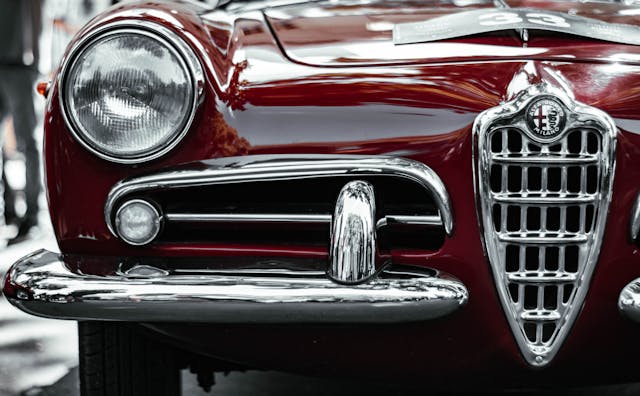Alfa Romeo, the Italian luxury car manufacturer, is a brand synonymous with passion, performance, and design. Since its inception in 1910, the company has cultivated a mystique that appeals to enthusiasts worldwide. For marketing professionals, Alfa Romeo offers a fascinating study in leveraging heritage, emotional branding, and strategic innovation to create a lasting impact in a competitive market.
This blog explores how Alfa Romeo blends tradition and modernity in its marketing strategies. We will analyze key campaigns, discuss the brand’s approach to storytelling, and consider how its strategies resonate with a global audience while staying true to its Italian roots.
Building a Legacy Through Heritage
One of Alfa Romeo’s core strengths lies in its ability to capitalize on its storied history. As a brand with more than a century of automotive innovation, it frequently integrates its heritage into its marketing narratives. The emphasis on legacy creates an emotional connection with car enthusiasts, particularly those who value authenticity and timeless craftsmanship.
A notable example of this strategy was the launch of the Alfa Romeo Giulia in 2016. The campaign was built around the tagline, “La Meccanica delle Emozioni” (“The Mechanics of Emotion”). This tagline succinctly conveyed the fusion of engineering excellence and visceral passion—a hallmark of Alfa Romeo’s ethos. The campaign highlighted the company’s racing heritage, showcasing the Giulia as a product born from a lineage of performance-driven vehicles.
The Giulia’s launch included evocative short films that celebrated Alfa Romeo’s iconic models from the past. These visuals weren’t just advertisements; they were an ode to the brand’s history, reinforcing its authenticity while introducing a new model to the market.

Emotional Branding: Tapping into Passion
Alfa Romeo’s marketing campaigns are masterclasses in emotional branding. Unlike many automakers that focus on technical specifications, Alfa Romeo prioritizes emotional resonance. This approach appeals to consumers on a deeper level, transforming a car purchase into an aspirational statement.
The 2017 “Riding Dragons” campaign for the Alfa Romeo Stelvio exemplifies this approach. The commercial depicted the Stelvio as more than an SUV—it was portrayed as an adventurous companion capable of conquering challenges with grace. Using sweeping cinematic visuals of the car navigating breathtaking landscapes, the campaign evoked feelings of freedom and possibility. The choice of music and narration further heightened the emotional appeal, making viewers feel part of the Alfa Romeo journey.
By aligning the Stelvio with feelings of strength, elegance, and wanderlust, Alfa Romeo succeeded in differentiating its SUV in a crowded market. The campaign underscored the brand’s ability to elevate a vehicle beyond its functional role and into the realm of aspiration.
Italian Design as a Marketing Tool
Alfa Romeo’s Italian identity is one of its most powerful differentiators. The company consistently highlights its roots in Milan, a global hub of fashion and design. By aligning itself with Italian luxury and craftsmanship, Alfa Romeo attracts consumers who value artistry as much as performance.
The brand’s social media presence often reflects this strategy. Platforms like Instagram and Pinterest are used to showcase the intricate design details of Alfa Romeo vehicles. High-quality images emphasize elements like the iconic Scudetto grille, the sleek curves of the bodywork, and the luxurious interiors. The captions often reference Italian culture, reinforcing the brand’s heritage.
In 2023, Alfa Romeo collaborated with renowned fashion designers Jacob Luppino and Anthony Pittorino to produce a limited-edition collection inspired by its vehicles. This cross-industry partnership highlighted the shared values of innovation, style, and attention to detail. Such collaborations not only expand Alfa Romeo’s reach but also deepen its association with high-end design and sophistication.
Leveraging Motorsport Heritage
Alfa Romeo’s long-standing involvement in motorsport has been a cornerstone of its marketing. The brand has competed in everything from Formula 1 to touring car championships, building credibility among performance enthusiasts. This motorsport legacy is often integrated into campaigns to emphasize the brand’s commitment to speed, precision, and engineering.
The 2019 Formula 1 season marked Alfa Romeo’s re-entry into the sport after a hiatus. The brand seized this opportunity to launch a comprehensive marketing campaign centered on its F1 partnership. The campaign included digital content that highlighted the parallels between Alfa Romeo’s F1 cars and its road vehicles, emphasizing shared technology and performance capabilities.
This strategy was particularly effective in engaging a younger audience. Formula 1 has experienced a resurgence in popularity, thanks in part to the Netflix series Drive to Survive. By aligning itself with this trend, Alfa Romeo positioned itself as a brand that appeals to both traditional enthusiasts and a new generation of fans.
Experiential Marketing: Creating Memorable Moments
Alfa Romeo understands the power of experiences in fostering brand loyalty. The company frequently organizes events that allow consumers to interact with its vehicles in immersive settings. These events not only showcase the cars’ capabilities but also deepen emotional connections with the brand.
One standout example is the “Alfa Romeo Driving Experience” program. This initiative offers customers and prospective buyers the opportunity to test-drive Alfa Romeo vehicles on racetracks and scenic routes. Participants are guided by professional drivers, ensuring they can fully appreciate the performance and handling of the cars.
In 2019, Alfa Romeo took this concept further with the “Passione Alfa Romeo” event series. Held in various cities across Europe, these events celebrated the brand’s history and innovation. Attendees could explore vintage Alfa Romeo models, participate in interactive exhibits, and test-drive the latest lineup. The events also featured exclusive merchandise and culinary experiences inspired by Italian culture, reinforcing the brand’s identity.
Digital Marketing and Storytelling
In recent years, Alfa Romeo has ramped up its digital marketing efforts, recognizing the importance of online engagement in the modern era. The brand’s digital strategy is built around storytelling, often using platforms like YouTube and Instagram to share content that resonates with its audience.
For instance, the campaign for the Alfa Romeo Tonale focused on the car’s advanced safety features. The campaign used cinematic storytelling to depict scenarios where the Tonale’s technology could prevent accidents and keep families safe. This approach balanced emotional appeal with practical benefits, showcasing Alfa Romeo’s ability to blend style with substance.
Alfa Romeo’s social media strategy also includes user-generated content, encouraging fans to share their own experiences with the brand. By reposting customer stories and images, Alfa Romeo fosters a sense of community among its audience. This approach not only increases engagement but also builds trust, as potential buyers see real-world examples of customer satisfaction.
Challenges and Opportunities in a Changing Market
While Alfa Romeo’s marketing strategies are undeniably compelling, the brand faces challenges in an evolving automotive landscape. The shift toward electric vehicles (EVs) presents both obstacles and opportunities. Alfa Romeo must navigate the tension between preserving its heritage and embracing innovation.

The company has begun addressing this challenge with the introduction of the Alfa Romeo Tonale Plug-In Hybrid. The marketing campaign for this model emphasizes its role as a bridge between tradition and future, showcasing how Alfa Romeo is adapting to changing consumer demands while staying true to its core values.
To appeal to environmentally conscious consumers, Alfa Romeo has also focused on sustainability in its messaging. For example, the Tonale’s campaign highlighted eco-friendly manufacturing processes and the use of recycled materials in its interior. These efforts reflect a broader shift in Alfa Romeo’s marketing, as the brand seeks to remain relevant in an industry undergoing rapid transformation.
Lessons for Marketing Professionals
Alfa Romeo’s marketing strategies offer several valuable insights for professionals in the field:
- Emphasize Emotional Connections: Alfa Romeo’s campaigns consistently tap into emotions, making the brand more relatable and aspirational. Whether through heritage, design, or performance, the company finds ways to connect with its audience on a personal level.
- Celebrate Authenticity: By staying true to its Italian roots and motorsport heritage, Alfa Romeo builds credibility and trust. This authenticity resonates with consumers who value brands with a clear identity.
- Innovate While Honoring Tradition: Alfa Romeo demonstrates that it’s possible to embrace innovation without losing sight of core values. The brand’s seamless integration of modern technology and timeless design serves as a blueprint for navigating change.
- Create Immersive Experiences: From driving events to cultural celebrations, Alfa Romeo understands the importance of experiential marketing. Such initiatives not only attract attention but also create lasting memories that deepen brand loyalty.
- Leverage Digital Storytelling: Alfa Romeo’s use of cinematic content and social media engagement highlights the power of storytelling in digital marketing. By crafting narratives that resonate with their audience, the brand enhances its appeal in a crowded market.
The Secret of Alfa Romeo’s Marketing Strategy
Alfa Romeo’s marketing strategy is a study in balancing tradition and modernity. The brand’s ability to craft emotional narratives, celebrate its Italian heritage, and engage with consumers through immersive experiences has cemented its place in the automotive industry. While challenges lie ahead, particularly with the shift toward electrification, Alfa Romeo’s track record of innovation and storytelling positions it well for the future.
For marketing professionals, the Alfa Romeo story serves as a reminder of the power of authenticity, creativity, and emotional resonance. By studying the brand’s strategies, we can find inspiration to create campaigns that leave a lasting impact on audiences.

